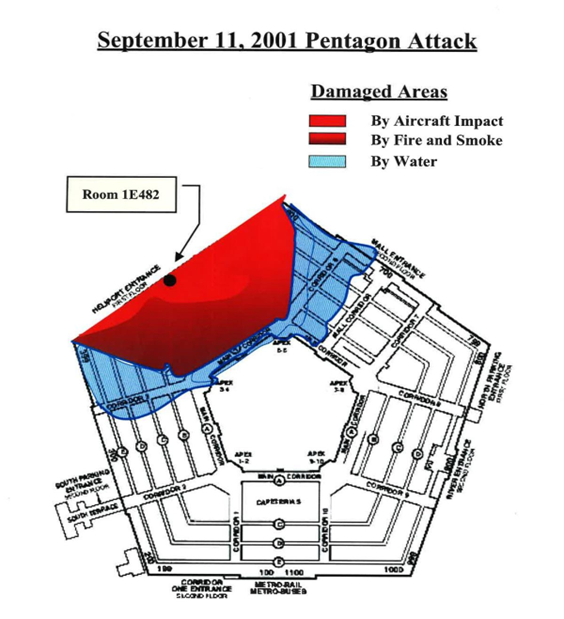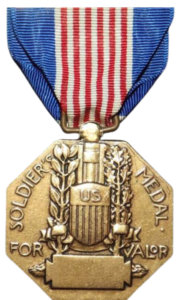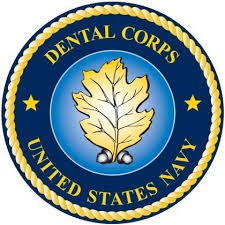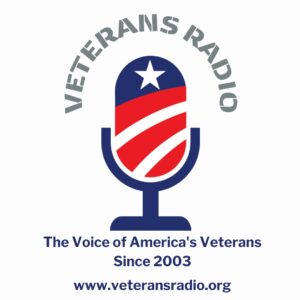Women Respond at the
Pentagon on 9/11

It is said that ordinary people take heroic action in the face of unimaginable danger. The Reader's Digest ran a story in May 2024 titled "15 Ordinary People Who Changed History." Regular people like Rosa Parks, and people who stood up for equal rights, against toxic chemicals, faced down tanks in Tiananmen Square, etc. Those highlighted included Todd Beamer and the other passengers on United Airlines Flight 93 realized their plane had been seized by terrorists, and they worked quickly and courageously to reclaim control. Flight 93 crashed in a field in Shanksville, Pennsylvania, but the passengers’ brave resistance galvanized America at its darkest moment. The terrorists planned to crash Flight 93 into the White House. The attacks were designed to strike US financial power in New York City, US military power, and US political power.
The coordinated airplane attacks on September 11, 2001, had many unsung heroes, including firefighters, military service members, doctors, nurses, and ordinary citizens. Often their actions are temporal and fleeting but so important in the moment. These actions do not necessarily define the person, but certainly add to the tapestry of their life’s achievements.
September 11, 2001
It was an ordinary early fall day. The sky was clear and blue. It was a Tuesday morning, and people were going about their day, heading to the office, going into meetings, or traveling for business or pleasure. Americans existed in a false sense of comfort that terrorism, so prevalent in the Middle East, was a problem “over there” and not in a country with oceanic buffers. However, four hijacked airliners shattered that illusion as well as the New York World Trade Center and the Pentagon.
The attacks on America on 9/11 will always be linked to other major catastrophic national events like Pearl Harbor, the assassination of Presidents Lincoln and Kennedy, or the COVID-19 pandemic. The 9/11 attacks are well documented in books, movies, documentaries, and photographs.
Excluding the hijackers, the attacks killed 2,977 people, injured thousands more, and gave rise to substantial long-term health consequences while also causing at least $10 billion in infrastructure and property damage.
The destruction of the World Trade Center and its environs seriously, yet temporarily, harmed the U.S. economy and induced global market shocks. Those attacks led directly and indirectly to 20 years of war in Iraq and Afghanistan. The total number of deaths caused by the attacks, combined with the death tolls from the conflicts they directly incited, has been estimated by the Costs of War Project to be over 4.5 million.
Cleanup of the World Trade Center site (colloquially "Ground Zero") took eight months and was completed in May 2002. The Pentagon was repaired within a year. The demolition and rebuilding wiped away the real estate scars of the attack. However, the personal and mental health issues caused by the attack will last a lifetime for many. The courage displayed on 9/11 by the victims and rescue teams, and the weeks after by the cleanup teams, should not vanish like rubble to the landfill.
Everyday Heroes
In hindsight, it is not surprising that on 9/11, many people rose to the challenges presented. Everyone hopes and aspires to rise to the challenges of such a tragic event, whether manmade or natural, like tornadoes and hurricanes. That is when preparedness meets opportunity.
At 9:38 a.m. on Sept. 11, 2001, American Airlines Flight 77 flew into the Pentagon building in Arlington, Virginia, at 530 mph. The Boeing 757 was carrying enough jet fuel to create an explosive force of one-half ton of TNT.
The plane came in so low that it clipped off light posts. It entered the building between the fourth and fifth corridors. The impact created an explosion that sent a fireball 450 feet up into the clear blue sky, followed by a plume of black smoke. The force sent debris into piles, spraying them with jet fuel and starting multiple fires inside.

The sound and impact of the crash are indescribable. The black acrid smoke was choking. The fires were frightening. The noise was deafening. The floors and walls were twisted and confusing. Yet some survivors, rather than simply getting out, stayed to help the wounded and dazed. These five women were among those who stayed, helped, and guided those hurt worse to get out of the building before the fire and smoke got worse.
At the Pentagon that day, the stories of five women standout as examples of American military women meeting unexpected needs during a crisis. Captain Susan Lori Galvin , USAF, Sergeant Roxane Cruz-Cortez , USA, Second Lieutenant Leigh B. Newman, USA, Lt Colonel Colleen C. Shull USA, and Lt. Colonel Marilyn D. Wills, USA.
Soldier's Medal
Each of the above women received the Soldier's Medal for their efforts at the Pentagon on September 11th. What is the Soldier’s Medal?
The Soldier's Medal, established in 1926, is a prestigious decoration awarded by the United States Army to recognize acts of heroism that do not involve combat with an enemy. This medal distinguishes individuals who demonstrate extraordinary courage and selflessness in situations where their lives are put at risk to save others. The Soldier's Medal was introduced as part of the Air Corps Act of 1926. This legislation recognized the need for an award that honored acts of heroism that occurred outside of combat zones. Before the establishment of this medal, there was no specific award for such heroic actions within the Army.
The Soldier's Medal represents the highest honor that can be bestowed upon an Army individual for heroism in non-combat situations. It signifies the ultimate sacrifice and bravery displayed by those who risk their lives to protect others. The medal is awarded for actions such as: Rescuing individuals from imminent danger; Disarming dangerous individuals; or Overcoming natural disasters.
The Soldier's Medal serves as a powerful symbol of the Army's commitment to valor and service. It highlights the extraordinary courage and dedication of individuals who go above and beyond the call of duty to protect human life. By recognizing these heroic acts, the Army inspires future generations of soldiers to uphold the highest standards of bravery and selflessness.
To be eligible for the Soldier's Medal, an individual must be a member of the United States military and must have performed an act of heroism that meets the specific criteria outlined in the award regulations. The act must involve a significant risk to the individual's life and must have resulted in the saving of life or the prevention of serious injury. It honors those who exemplify the core values of the Army: loyalty, duty, respect, selfless service, honor, integrity, and personal courage.

Sergeant Roxanne Cruz-Cortez, USA
Cruz-Cortez's actions that day highlight that in the military, you are fighting to save the buddy next to you in the mythical foxhole. Specialist April Gallop was in Room 1E517 in Wedge 2. On 11 September, Gallop brought her two-month-old son Elisha to work with her because her babysitter had been hospitalized. With Elisha in a stroller alongside her desk, Gallop sat in front of a computer. "And as soon as I was about to turn the computer on, boom ... the computer blew." The walls and ceiling crumbled, and she found herself covered in debris up to her waist. Frantically looking for her son in the smoke-darkened room, with flames providing the only light, she saw that the stroller was on fire but empty. Freeing herself from the debris, Gallop searched desperately for her baby and found him covered up in the litter. “He’s in a ball, like that.... So I was thinking, oh, my God, his bones are broken."
Two of Gallop's office mates, Corporal Eduardo Bruno and Sergeant Roxanne Cruz-Cortez, soon came to her aid after freeing themselves from the rubble that had trapped them for a few minutes. They helped her climb over the half-demolished office wall and passed the baby from hand to hand as they moved toward an outside window in the E Ring that led to safety. Followed by perhaps as many as 10 civilian workers, Bruno and Cruz-Cortez reached a window. Cruz-Cortez pushed and pulled two hysterical women to the window. The baby was passed outside, and the others followed, dropping one by one. Bruno, although injured and later hospitalized, helped catch people dropping from the window. Once on the outside, Gallop lost consciousness. When she awoke in George Washington University Hospital, she called for her baby. Fortunately, he had survived without serious injury.
Cruz-Cortez’s citation reads:
The President of the United States of America, authorized by Act of Congress, July 2, 1926, takes pleasure in presenting the Soldier's Medal to Sergeant Roxane Cruz-Cortez, United States Army, for heroism above and beyond the call of duty on 11 September 2001, after a hijacked airline flight, with over 30,000 pounds of jet fuel was used by international terrorists as a weapon to attack the Pentagon. Upon impact, there was a thunderous explosion and a horrific fire that left both military and civilian personnel in a state of shock. Without regard for her life, overcoming shock, chaos, and deadly smoke, Sergeant Cruz-Cortez aided in the rescue effort. She continued to risk her life on numerous occasions by helping the injured and dying personnel. Her unyielding devotion to her fellow soldiers and civilians undoubtedly saved lives and showed America's resolve to overcome this act of international terrorism. Sergeant Cruz-Cortez's heroic acts are a testament to her bravery and reflect great credit upon herself and uphold the highest traditions of the United States Army.
Lt Colonel Colleen C. Shull, USA
Colonel Shull came from a military family by way of being a dentist. Shull, the daughter of a World War II veteran, told of her childhood that planted the seeds of her patriotism at a 2002 Memorial Day event in Muncy, Pennsylvania. The importance of educating children about the sacrifice of service and American values was discussed by Shull in her speech.
“As a child, I too marched in this annual procession of American History each Memorial Day. Our father took us to Muncy Creek to pick wild flowers and then dropped us off by Stein's Garage. Then my siblings and I joined Legions of other Muncy Elementary School children as we divided up into our grades’ Brownies, Girl Scouts, and Little League teams and marched in the same footsteps of a century of school children to the Muncy Cemetery, placing flowers on the graves marked with flags. I loved Memorial Day, the flowers, the parade, and running to find a grave with a flag. I loved it all. Yet, even as a young girl, I understood the solemnness of this day. I remember saying silent prayers and thanking those who had died for defending our Liberty and our way of life that we enjoy as a nation. I still love the school children and their flowers … As an adult, I connect with Memorial Day as a daughter and as a soldier. When I leave this podium, I place flowers next to the flag on my father's grave, much as women 100 years ago did. When I hear Taps, I will be reminded that, though he did not talk about it much, my father spent months fighting in the jungles of the Philippine Islands during World War II.
***
As many of you know, I work at the Pentagon. On September 11th, I was finishing a root canal when I first heard the news of the plane crash into the first Tower of the World Trade Center. Before I heard the report of the second crash, an announcement came on the overhead and stated that all medical personnel to the front of the clinic immediately. I knew in my heart I knew it was not a drill. I knew something had happened. I ran out with my colleague, Dr. Sherma Safe, a Navy Lieutenant. Once we got to the front of the medical clinic, a security guard told us to go to the center Courtyard, a bomb had gone off in the building. Once in the courtyard, Dr. Safe and I entered the opposite side of the building to treat casualties and evacuate personnel. Looking back on that day, there are two reasons why I'm immensely proud. The first is that there was smoke and heat and fire and injured all around, yet I felt in control. My military training had prepared me for this, and nothing felt overwhelming or shocking. I give great credit to our leadership in preparing and training us to think on our feet and giving us the tools by which to carry out our mission, planned or improvised. The second source of pride comes from the inspiration that Navy Lieutenant Sherma Safe gave me while we reacted to this terrorist attack. Lieutenant Safe rolled in the water and wrapped his head in a t-shirt to re-enter the building to save casualties and trapped individuals. And yet, Lieutenant Safe, a Muslim and a naturalized US citizen, was born and raised in Iran until fleeing to the United States at the age of 14. On this Memorial Day, let us honor those who have sacrificed their lives in service to our country by looking at how we live to support the values for which these men and women died."

Shull’s citation reads:
The President of the United States of America, authorized by Act of Congress, July 2, 1926, takes pleasure in presenting the Soldier's Medal to Lieutenant Colonel Colleen C. Shull, United States Army, for heroism above and beyond the call of duty on 11 September 2001, after a hijacked airline flight, with over 30,000 pounds of jet fuel was used by international terrorists as a weapon to attack the Pentagon. Upon impact, there was a thunderous explosion and a horrific fire that left both military and civilian personnel in a state of shock. Without regard for her own life, overcoming the shock, chaos, and deadly smoke, Lieutenant Colonel Shull rushed to the point of impact to assist in extricating casualties. She continued to risk her life on numerous occasions by helping the injured and dying personnel. Her unyielding devotion to her fellow military and civilian comrades undoubtedly saved lives and showed America's resolve to overcome this act of international terrorism. Lieutenant Colonel Shull's heroic acts are a testament to her bravery and reflect great credit upon herself and uphold the highest traditions of the United States Army.
Lt. Col. Marilyn Wills, USA
Willis was the deputy chief of staff for Personnel Congressional Affairs Contact Officer at the Pentagon on 9/11. On that day, at one of the innumerable Pentagon meetings, Marilyn Wills was making her report to the group when Flight 77 struck. No one in the meeting knew of the attacks on New York. One attendee later remembered seeing a fireball at the north end of the table; then the lights went out, and parts of the ceiling came down. Most of those in the room turned to the exit that opened into the E Ring hallway. Wills found the door to the flame-engulfed hallway, but it was locked, so the participants reversed direction and headed out in the other direction.
Wills and others began crawling toward the back of the bay. They feared they would collapse from the smoke until a sprinkler doused them with water, soaking their clothes and allowing them to use some of the wet clothes as air filters. At one point, Wills carried another woman on her back as she crawled. Wills, Stevens, and later Maxfield followed McNair and crawled through the darkness and smoke to the back of the office bay next to A-E Drive, where they found Specialist Petrovich and Dalisay Olaes at the windows.
Those trapped in the recently renovated space had to break a damaged window to get people out of that section of the building. Wills and others repeatedly called out for additional survivors. Finding none, a colonel lowered Wills to the driveway and then dropped down the wall to safety. At Walter Reed, Wills received extended treatment for burn and smoke injuries and a frozen shoulder.
She received the John F. Kennedy Profile in Courage Award for Public Service, Soldiers’ Medal, and Purple Heart for her heroism in leading others to safety.
Wills’ citation reads:
The President of the United States of America, authorized by Act of Congress, July 2, 1926, takes pleasure in presenting the Soldier's Medal to Lieutenant Colonel Marilyn D. Wills, United States Army, for heroism above and beyond the call of duty on 11 September 2001, after a hijacked airline flight, with over 30,000 pounds of jet fuel was used by international terrorists as a weapon to attack the Pentagon. Upon impact, there was a thunderous explosion and a horrific fire that left both military and civilian personnel in a state of shock. Without regard for her own life, and overcoming the shock, chaos, and deadly smoke, Lieutenant Colonel Wills aided in the rescue effort by leading a group that was trapped in an inner conference room through the smoke and falling debris to a window along the B-ring. Once there, he helped to systematically lower all individuals out of the second-story window and then risked her life by remaining at the window using her voice to direct more casualties to the escape route before being ordered to evacuate due to the thick smoke and flames. Lieutenant Colonel Wills' unyielding devotion to her fellow soldiers and civilians undoubtedly saved lives and showed America's resolve to overcome this act of international terrorism. Lieutenant Colonel Wills' heroic acts are a testament to her bravery and reflect great credit upon herself and uphold the highest traditions of the United States Army.
Captain Susan Lori Galvin, USAF
Air Force Captain Galvin would have been one of thousands of people working in the Pentagon on that fateful day. Her background story is unknown, but her actions were recognized. She certainly modeled the USAF core values, which include “Service before Self.”
Galvin’s citation reads:
The President of the United States of America, authorized by Act of Congress, July 2, 1926, takes pleasure in presenting the Soldier's Medal to Captain Susan Galvin, United States Air Force, for heroism above and beyond the call of duty on 11 September 2001, after a hijacked airline flight, with over 30,000 pounds of jet fuel was used by international terrorists as a weapon to attack the Pentagon. Upon impact, there was a thunderous explosion and horrific fire that left numerous military and civilian personnel severely injured and others in shock. Without regard for her own life, Captain Galvin went to the rescue of the injured and dying personnel to render medical care and evacuate them to safety. Despite the continuous danger to herself of smoke, fire, and the building collapsing, she continued to risk her life on numerous occasions to rescue those needing medical attention. Captain Galvin's unyielding devotion to her fellow soldiers and civilians undoubtedly saved lives and showed America's resolve to overcome this act of international terrorism. Captain Galvin's heroic actions are a testament to her bravery and reflect great credit upon himself and uphold the highest traditions of the United States Air Force.
Second Lieutenant Leigh B. Newman, USA
As reported by Lt. Col. Bill Delaney in the Mountain Democrat paper: “In our outer office, Ms. Leigh Newman had a large gash across her leg, which was bleeding, but she refused to exit or receive treatment, and she stayed to help others exit the building. Mr. Danny Jamison had been blown into the wall in front of him, into the hallway, and was just regaining consciousness. As he clung to a large bundle of orange Internet cables hanging from the crawl space above, he said he thought he was holding a static line for a parachute jump in Vietnam. Leigh helped Danny find his way out.” The details of her survival and activity on that day are otherwise briefly explained in her citation for the Soldier's Medal.
Newman’s citation reads:
The President of the United States of America, authorized by Act of Congress, July 2, 1926, takes pleasure in presenting the Soldier's Medal to Second Lieutenant Leigh B. Newman, United States Army, for heroism above and beyond the call of duty on 11 September 2001, after a hijacked airliner was used by terrorists as a weapon to attack the Pentagon. Although injured and dazed by the explosion and without regard for her own life, Second Lieutenant Newman calmly rendered aid to members of her office and guided them to safety before seeking escape herself. Her unyielding devotion to her fellow soldiers and civilians undoubtedly saved lives and epitomized the motto of "Citizen Soldier." Second Lieutenant Newman's heroic acts are a testament to her bravery and reflect great credit upon herself and uphold the highest traditions of the United States Army.
Conclusion
These military women are examples of courage in chaos. They were unexpectedly thrown into turmoil, but remained calm and studied, helping others get to safety. Each earned and deserved the recognition of the Soldier’s Medal.
About the Author
Jim Fausone is a partner with Legal Help For Veterans, PLLC, with over twenty years of experience helping veterans apply for service-connected disability benefits and starting their claims, appealing VA decisions, and filing claims for an increased disability rating so veterans can receive a higher level of benefits.
If you were denied service connection or benefits for any service-connected disease, our firm can help. We can also put you and your family in touch with other critical resources to ensure you receive the treatment you deserve.
Give us a call at (800) 693-4800 or visit us online at www.LegalHelpForVeterans.com.
This electronic book is available for free download and printing from www.homeofheroes.com. You may print and distribute in quantity for all non-profit, and educational purposes.
Copyright © 2018 by Legal Help for Veterans, PLLC
ALL RIGHTS RESERVED

